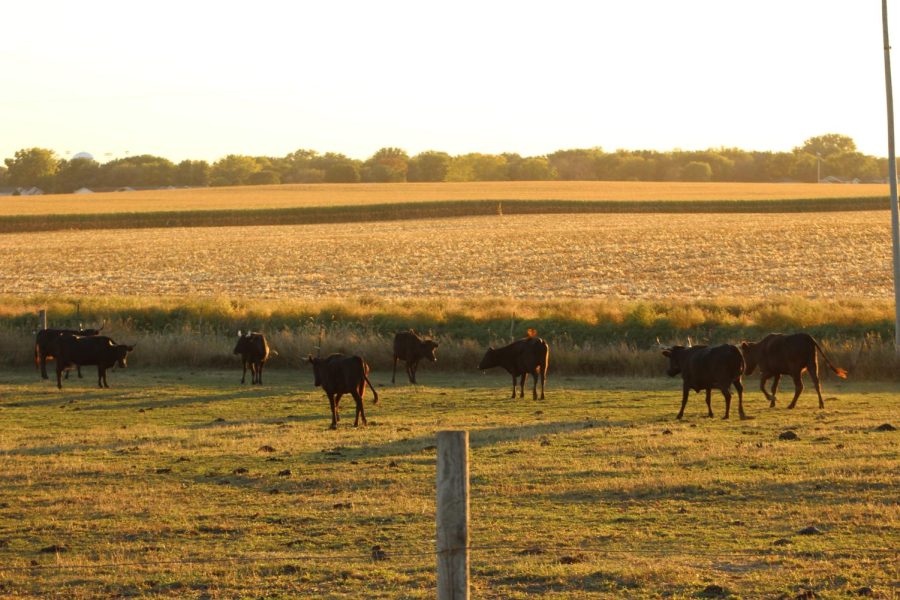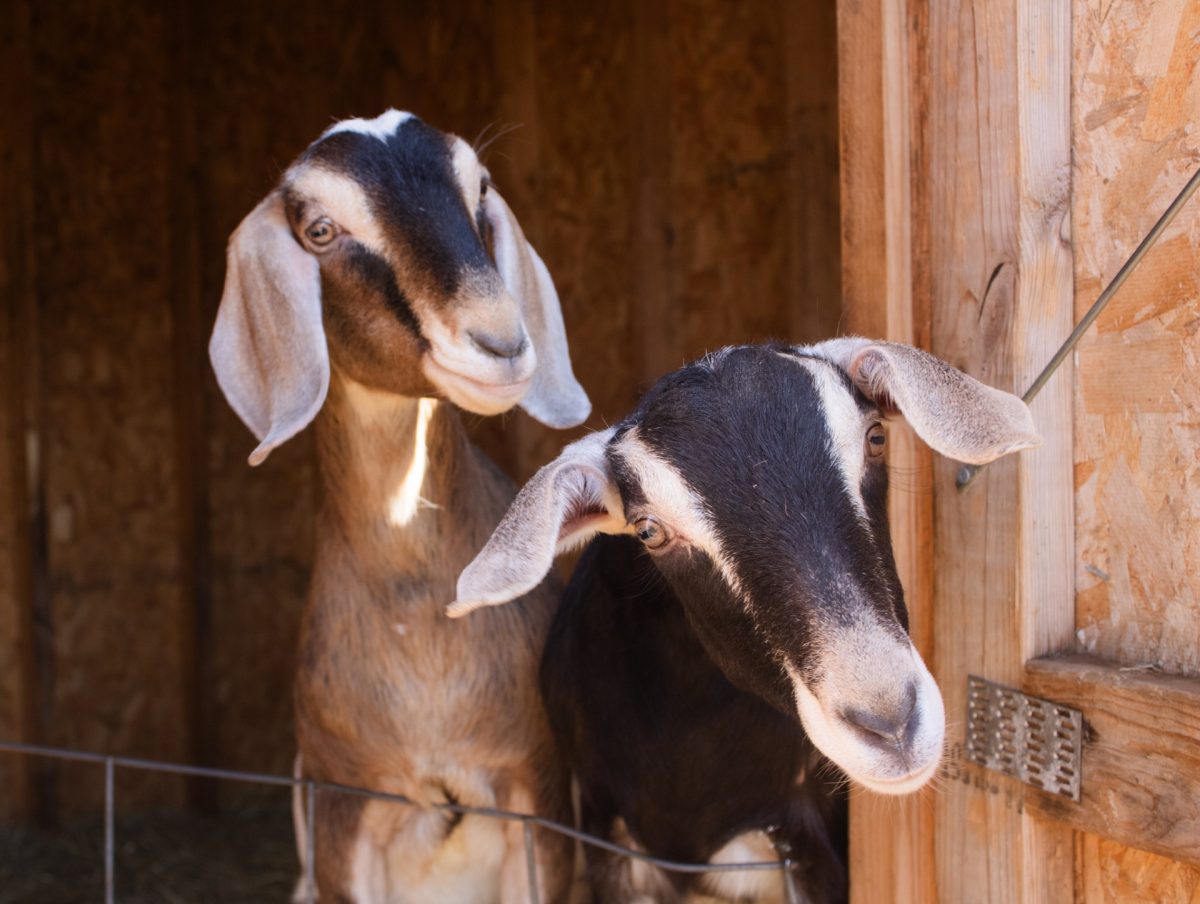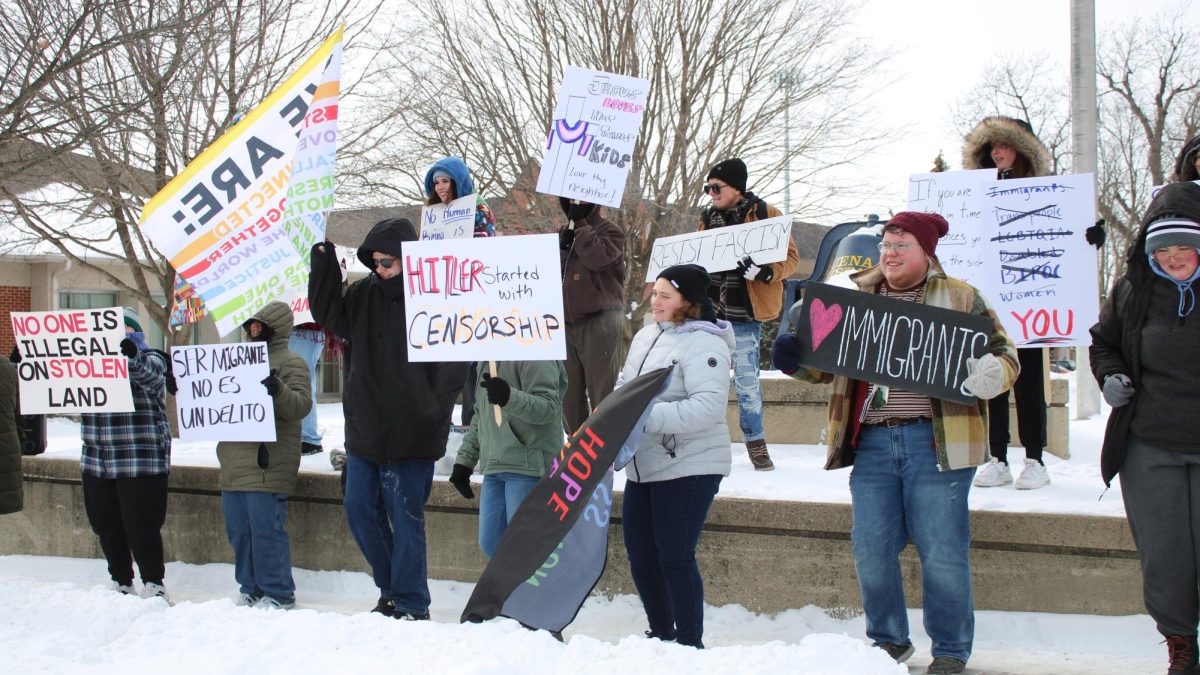Proposition 12: Impact on Locals
April 29, 2023
Proposition 12, California’s new law that addresses farm animal confinement, may have an impact on the entire country. The law went into effect on Jan. 1, 2022, and changed how veal calves, breeding pigs, and egg-laying hens are housed. It is written to prevent any sales of these animals in or to California if producers do not change housing to meet new guidelines.
The guidelines make specific measurements for veal calves, pigs, and egg-laying hens. Each egg-laying hen is required to have a minimum of 1 square foot of usable floor space. Each sow (female breeding pig) is required to have 24 square feet of usable floor space. Right now, each breeding sow has 7 feet by 2 feet of space enclosure. Each cow raised for veal is required to have 43 square feet. This makes the measurements bigger for each animal.
According to the California Department of Education (CDE), “California regulations require veal calves, breeding pigs, and egg-laying hens to be housed in systems that comply with specific standards for freedom of movement, cage-free design, and specified minimum floor space. These regulations also prohibit a farm owner or operator from knowingly confining these specific animals in a cruel manner as well as prohibits a business owner or operator from knowingly engaging in the sale of shell eggs, liquid eggs, whole pork meat, or whole veal meat from animals housed in a cruel manner.”
The National Pork Producers Council (NPPC) and the American Farm Bureau Federation (AFBF) said that this law is unconstitutional for farmers outside of California. Currently, the two have taken this to court.
NPPC and AFBF argue that California is breaking the Interstate Commerce Clause, which “gives Congress broad power to regulate interstate commerce and restricts states from impairing interstate commerce.” Proposition 12 regulates the sale of eggs, pork, and veal outside of California.
The main concern for many Americans is the pork industry. Rich Crow, the director of agriculture at Buena Vista University said, “In this case, there are very few, if any hogs, raised in California, so the rules won’t really apply to California farmers. It would be applying to farmers in other states like Iowa.”
The new space requirements impact those outside of California as well. If required of all farmers, veal, pork, and egg costs will also increase for the consumer. The reason these prices would increase is that producers would have to spend a large sum of money to make changes to their farms. Iowans could see an increase of about $1.75 to $2 in a pound of bacon. Right now, a pound of bacon in Iowa costs about $5. California or other states could see a much higher increase in pork costs. The price of veal and eggs could also go up.
Many Americans are already struggling to pay for necessities like food. The government has put into place things like SNAP benefits to try and combat the issue, but if prices keep increasing, SNAP benefits will have to as well. This means higher taxes for residents all over America.
“They may go out of business because they can’t afford to make the modifications and remain profitable. We are talking $3,500 estimated. That’s the cost per sow space to meet these modifications. In this industry, it is 20 to 30 dollars per hog. It’s very hard to pay back that big of an additional investment,” said Crow.
Crow is not the only one who is concerned about the price increases.
Ben Nuelle, the public policy director for the Iowa Pork Producers Association said, “California’s Proposition 12 is very concerning for Iowa pig farmers because if the law is upheld by the Supreme Court, it will be extremely costly for farmers to reconstruct pig barns which would ultimately raise food prices for consumers.” Nuelle also noted that the estimated implementation of Prop 12 could cost nearly $3,500 per sow, according to the National Pork Producers Council.
Iowa has laws in place to ensure hogs are housed safely. “Pig farmers always strive to put the care of their animals first and foremost,” said Nuelle.
The results of the hearing for Proposition 12 will be announced in May of 2023.








